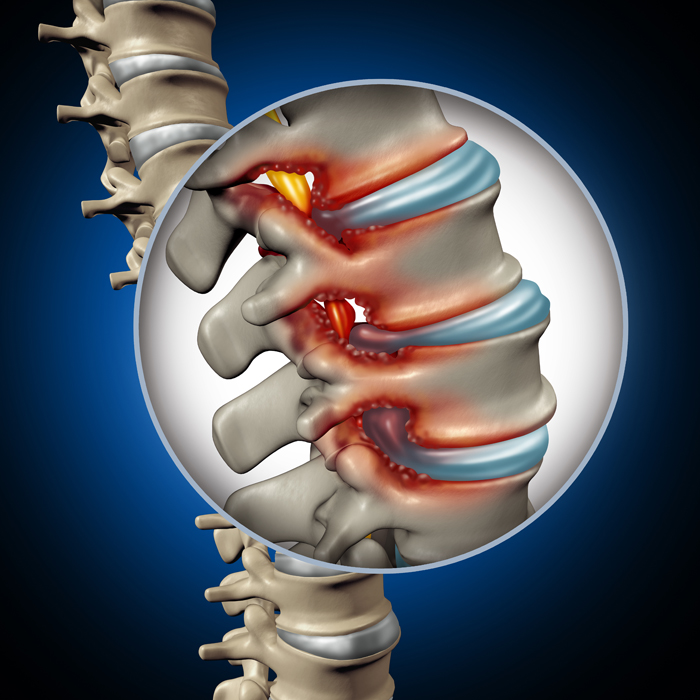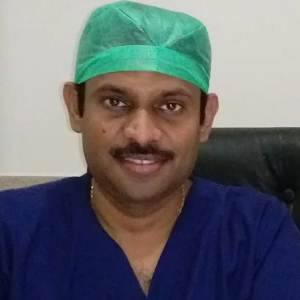Spinal Stenosis Treatment in MRC Nagar, Chennai
Spinal stenosis is the disorder in which the spaces between spines get narrowed, causing pressure on the vertebrae. This pressure causes pain in the neck and lowers the back. Some people might suffer severe symptoms, while some may not even identify the condition until it becomes unbearable. To know more about the disease, visit your nearest orthopedic hospital.

What Are the Types of Spinal Stenosis?
- Cervical stenosis- In this condition, the narrowing of the spaces occurs in the neck region of the spine. The neck swells, and pain is caused, which interferes in the day-to-day activities of the person.
- Lumbar stenosis- In this condition, the lower back region of the spin gets its spaces narrowed. It is the most common type of stenosis which causes excruciating pain in the lower back, buttocks, hips, and legs.
What Are the Symptoms of Spinal Stenosis?
- Numbness in the legs, hand, arm, and foot
- Tingling in foot and legs
- Muscle weakness
- Neck pain
- Back pain
- Dysfunction of bowel and bladder
- Cramp in legs
- Difficulty in walking
- Difficulty in balancing
- Swelling in the neck
What Are the Causes of Spinal Stenosis?
- Injured spines
- Spinal tumor
- Thickened ligaments
- Herniated disks
- Overgrowth of bone
- Achondroplasia
- Ankylosing spondylitis
- Congenital spine stenosis
- Ossification of the posterior longitudinal ligament (OPLL).
- Osteoarthritis.
- Paget’s disease of the bone.
- Rheumatoid arthritis.
- Scoliosis.
When to See a Doctor?
If you ever feel pain in the neck, back, shoulder, arms, lower back, buttocks, and legs, you should contact your nearest orthopedic.
Request an appointment at Apollo Spectra Hospitals, MRC Nagar, Chennai
Call 1860 500 2244 to book an appointment.
What Are the Risk Factors of Spinal Stenosis?
- Aging
- Overweight
- Trauma
- Scoliosis
- Genetic disorders affecting bone and muscle
What Are the Complications of Spinal Stenosis?
- Paralysis
- Incontinence
- Problems in balancing
- Weakness
- Numbness
- Tingling
- Pain
How to Prevent Spinal Stenosis?
- Exercise daily
- Drink lots of water
- Maintain proper posture
- Maintain healthy diet
- Sleep on a suitable mattress
What Are the Treatments of Spinal Stenosis?
- Medications
- Cortisone injections
- Antidepressants
- Anti-seizure
- Opioids
- Over the counter pain relievers
- Surgery
- Laminectomy- This surgery involves the removal of portions of the vertebra to provide more space to the nerves for its better conduction
- Foraminotomy- This surgery involves widening the space in between the spines to improve signal conduction.
- Spinal fusion- This surgery involves the fusion of a bone or metal graft when more spinal bones are involved. This is one of the rarest surgeries and is only done in severe cases.
- Laminoplasty- This surgery involves the opening up of the space within the spinal canal. Metal bridging is attached in the open area.
- Minimally invasive surgery- This surgery involves minimal damage to the adjacent bone because your bone or lamina is removed with minimal surgical complications.
- Percutaneous image-guided lumbar decompression (PILD) - In this procedure, the lumbar stenosis patients are treated by removing the thickened ligament in the back of the spinal column with the help of a small needle-like instrument to increase the spinal canal space and remove the nerve canal intrusion.
- Heat therapy - Warm towels, a warm bath, or heating pads will relax your stiff muscles.
- Cold therapy - Either towel-wrapped cold-pack or ice will relieve your pain and your swollen back.
- Acupuncture and massage
- Chiropractic treatment
- Exercise
Request an appointment at Apollo Spectra Hospitals, MRC Nagar, Chennai
Call 1860 500 2244 to book an appointment.
Conclusion
Spinal stenosis is when the space between the spine gets widened, and in return, the pressure between the two increases. This pressure causes pain in the neck and back, tingling, numbness in the legs, hand, arm, and foot, weakness in the muscle, dysfunction of bowel and bladder, leg cramps, difficulty in walking and balancing. The symptoms can be treated with medications like corticosteroids injection that has to be injected in the spine, NSAIDs, and over the counter pain relievers. Surgical treatments like- laminectomy, foraminotomy, and spinal fusion are recommended only if other treatments are unsuccessful. You can also treat symptoms of the disorder by acupuncture, massage, heat/cold packs, and exercise. The complications are very severe and can be as dangerous as paralysis, incontinence, and loss of balance.
If you feel pain in the neck, back, shoulder, arms, lower back, buttocks, and legs, you should visit your nearest orthopedic hospital for some imaging tests like CT scans, X-rays, and MRI myelogram.
You should talk to your doctor about the medicines you should. To ease out the pain, you can take over-the-counter medication and apply hot/cold packs. Acupuncture, massages, and physical therapies are also few ways to prevent pain.
People over 50 are most likely to develop spinal stenosis because of degeneration of the vertebral column and gradual aging. Wear and tear are also one reason for the development of spinal stenosis in both men and women.
Symptoms
Our Doctors
DR. KARTHIC BABU NATARAJAN
MBBS,MD, DNB...
| Experience | : | 13 Yeras Experience |
|---|---|---|
| Speciality | : | Pain Management... | Location | : | MRC Nagar |
| Timings | : | On Call... |
DR. SHEERIN SARAH LYSANDER
MBBS, MD(Anesthesiol...
| Experience | : | 8 Yeras Experience |
|---|---|---|
| Speciality | : | Pain Management... | Location | : | MRC Nagar |
| Timings | : | Mon - Sun : 7:00 AM ... |
Our Top Specialities
NOTICE BOARD
CONTACT US
CONTACT US
 Book Appointment
Book Appointment




.svg)
.svg)
.svg)
.svg)








